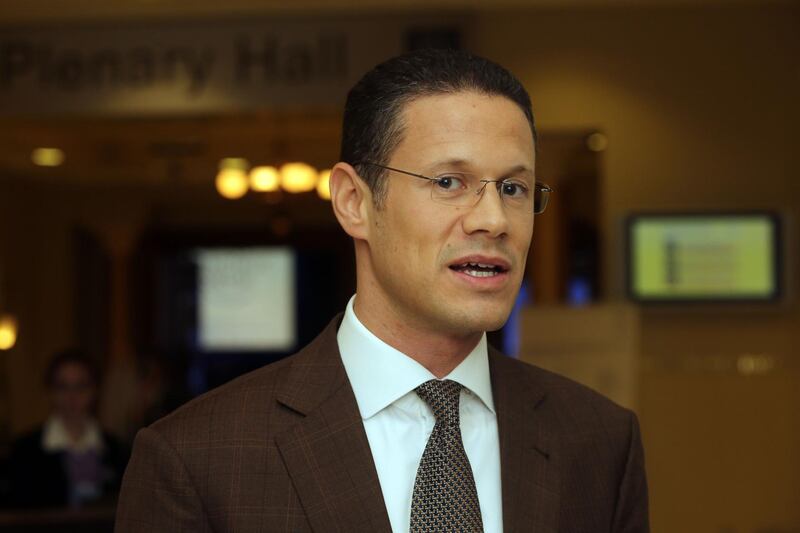UAE-based multinational Crescent Enterprises, which launched last month a Venture Capital arm to invest US$150 million in the next three years, plans to make at least three investments next year, its chief executive said.
Crescent Enterprises Venture Capital (CE-VC) is targeting technology companies and plans to invest in a logistics technology firm in the first half of next year, and an energy technology company in the second half of the year, said Badr Jafar. He declined to give a location for the investments.
CE-VC is planning a combined Series B investment in a pair of Texas-based robotics firms developing surgical medical devices, he said.
Prior to launching the venture capital arm, Crescent Enterprises, a private Sharjah-based conglomerate with operations across industries including ports and logistics, power and engineering, business aviation and healthcare, had invested in startups as a new revenue stream.
“A lot of the investments so far are in the US, but we are also very excited about what’s happening closer to us, including in India, and elsewhere in Asia, such as the Philippines and Sri Lanka," said Mr Jafar.
“There are some very exciting tech hubs there, that are probably less exposed to the institutional venture capital outfits present in the US.”
CE-VC aims to focus on strategic direct investments in early-to-late stage start-ups worldwide, with 50 per cent intended for companies in the Middle East and North Africa (Mena) although Mr Jafar said this was “optimistic”.
The Middle East and North Africa's VC landscape has historically lagged behind other parts of the world in terms of available capital to start-ups. However several high profile deals in the VC space have given the sector some momentum. These include Amazon’s US$580 million acquisition of homegrown UAE e-commerce site Souq.com, the biggest international acquisition of a Mena startup, and Dubai billionaire businessman Mohamed Alabbar’s investment in VC firm Middle East Venture Partners (MEVP).
Last month, a study from Beco Capital, a Dubai-based VC firm, found that the number of start-ups, angel investors, VCs and other relevant institutions supporting technology-related entrepreneurship across Mena rose by 32 per cent in 2017 compared with last year, suggesting the sector is maturing.
____________
Read more:
[ UAE multinational backs micro-surgery robotics venture ]
[ Healthcare to drive property investment, JLL says ]
[ Gene therapy drug approval could signal revolution in healthcare ]
____________
Crescent has been active in venture capital for the past two years prior to launching CE-VC with investments. These include investments in Indian meat and fish e-commerce outfit called Freshtohome.com, which will soft-launch in the UAE in the first quarter of 2018 and Saudi Arabia later in the year following its funding from Crescent.
Crescent has made 25 VC investments with around 15 per cent of those in the ‘med-tech’ sector in terms of number of deals. The targeted Series B robotics investment follows a $16m investment in ColubrisMX and XCath, two micro-robotic medical device companies developed at the University of Texas Medical School, as part of a Series A fundraising round.
"We are probably investing slightly more in med-tech [than in other sectors in terms of size of deals] because we are investing in the pre-clinical rather than start-up phase," he said.
Med-tech is an increasingly attractive area of investment in Mena due to rising demand for healthcare provision. With a rapidly growing population, the region is forecast to need 470,000 additional hospital beds in the next five years to keep up with minimum per capita requirements set by the OECD, according to a report from consultancy JLL in September.
This equates to 3,130 new hospitals over the same period – an ambitious target that puts pressure on countries to increase the quality of service provision.
“If you look closer at our region, digitising healthcare is no longer a nice-to-have, but an urgent need,” Mr Jafar said.
“This is giving way to a new generation of healthcare providers, businesses and governments proactively capitalising on new technologies to address these needs, contextualised to local requirements.”





